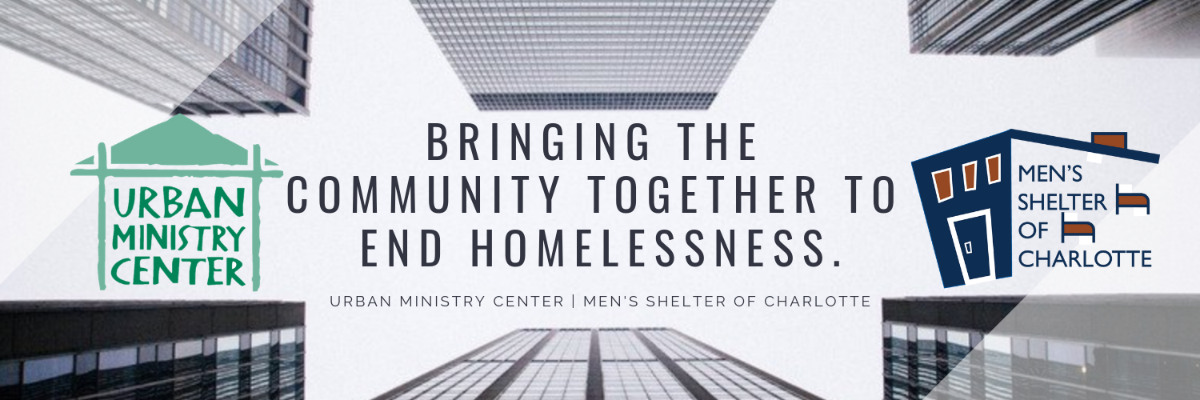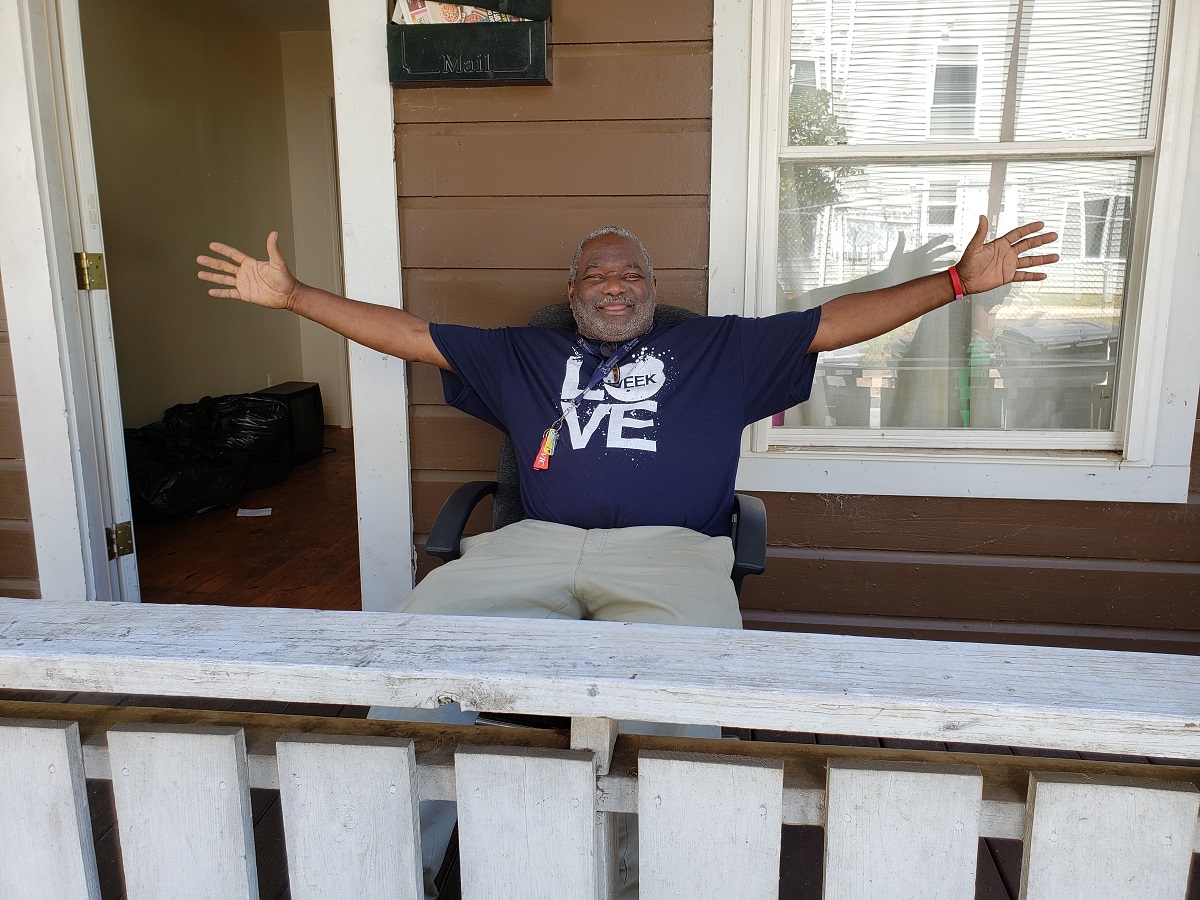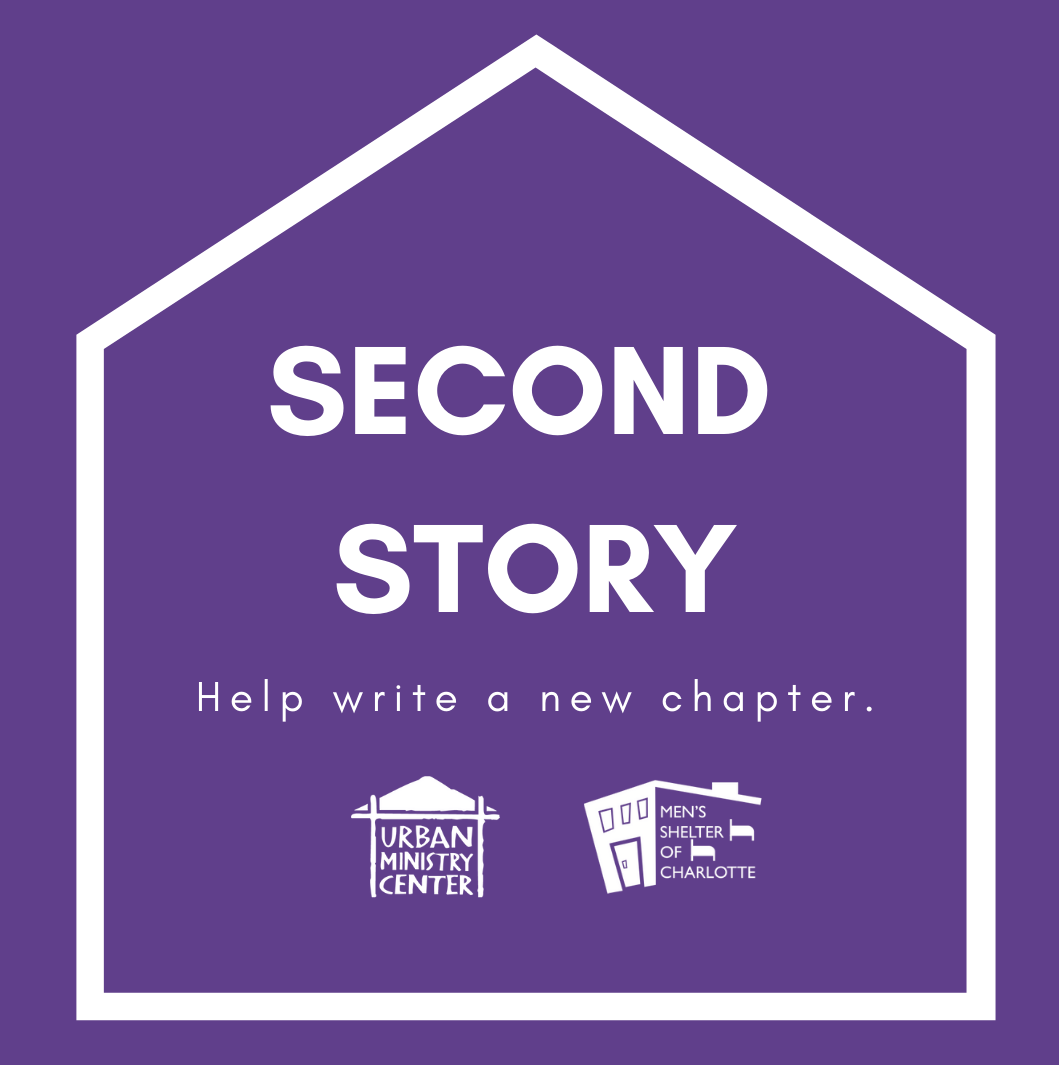|
Many of you have reached out to ask about these encampments. Your concern for the people living in the tents and your interest in helping are a testament to this community's heart. We are truly grateful for you!
Below are a few of the questions we have been asked most frequently, including ways that you can help, as we all work together to end homelessness in Charlotte.
Why is there now a large tent community outside Roof Above's Day Services Center (945 N. College Street)? As COVID-19 descended upon our community and a "stay at home" order was issued, tents organically sprung up outside the gates of Roof Above's Day Services Center. For many who are unsheltered, our Day Services Center is a "home base," where people can have their basic needs met with a shower, laundry, or meal and get their mail.
Keeping in line with the Center for Disease Control's directive to not remove encampments and avoid the threat of spreading COVID-19, the public and private property owners have allowed the tents to remain.
Is the encampment outside your gates an official Roof Above encampment? No. The encampment was created organically. While Roof Above is active in the encampment, the encampment is also served by several grassroots groups and individuals, who regularly visit to distribute food, drinks, and supplies. Some groups assist with cleaning as well. While Roof Above has contact with some of these groups, we are not coordinating community activities in the encampment.
How is Roof Above helping people in tent communities? Our Day Services Center remains open every day, offering access to basic needs and connections to other community and housing resources. We have staff members called "Housing Navigators" that go into encampments to build relationships with people, help them connect to resources, and work towards a housing plan. We have successfully helped move more than 30 people from the tents outside our gates to either a shelter, reunification with family, or other housing opportunities. We are adding an additional Housing Navigator to focus on work in encampments, particularly the one located outside our gates.
Why haven't we ever seen tent cities as large as this before? Encampments have existed for decades in this community. Generally, encampments are less than a dozen tents and are set up in the woods or along railroad tracks, outside of public view. More visible encampments are more likely to be cleared, as people are trespassing unless they have been given permission to be on the property. The recent concentration and visibility of encampments is unprecedented in our community. It seems to be related to the pandemic, in that people are locating in more centralized areas and the community is supporting CDC's recommendation not to remove encampments.
I heard Roof Above started giving out tents during the pandemic. Why was that? Through our Housing Navigators that provide outreach to people in encampments, Roof Above has always given out tents, and done so year-round. We increased our tent donations during COVID-19 because tents provide a sleeping barrier, which is protective against the virus.
I heard the shelters had to reduce beds. Is that why we are seeing more people outside? While Roof Above did downsize our shelter beds for social distancing reasons, this did not reduce the number of "shelter" beds. That's because with the addition of motel rooms and converted dorms, we are offering dozens more shelter beds. A big part of why we are seeing more people outside is that people are sleeping in more visible places.
What does the Center for Disease Control (CDC) say we should be doing about encampments right now? The CDC has published guidance on homelessness and COVID-19. The CDC recommends trying to connect people in encampments with housing or safe sheltering options. If those options aren't available, the CDC recommends trying to space out tents, providing restroom and hygiene facilities and not clearing the encampments.
I heard everyone might have to leave the encampment by your Day Services Center. Is this true? At the time of sending you this message, there is not an order in place to have people removed from the encampment outside our Day Services Center. However, at any time, property owners can ask for people to be removed. Approximately 70% of the encampment is on public land with the remaining on private land. There is a pending lawsuit from a nearby property owner against the private land owners regarding this encampment.
There is another large tent community by 12th St. and Graham St. (about 40 tents), which is on private property. The owner has asked people to leave by August 14th at 5:00 p.m.
What happens when encampments are cleared? It is a somewhat common experience that a property owner would ask police to have people in an encampment removed because of trespassing. Often, property owners are willing to give the people in the encampment a certain time-frame to leave the property. If people refuse to leave, they may be arrested for trespassing. Our Housing Navigators might be contacted by the police to see if we can connect people in the encampment with other resources, such as shelter or housing. Most commonly, people in an encampment relocate to another piece of land or another encampment.
In the case of the encampment at 12th & Graham that will be cleared at the end of the week, our Housing Navigators will be engaging with those in the encampment this week, to connect with other resources if possible.
Are these encampments unique to Charlotte? How have other cities responded? Cities across America continue to struggle with homelessness in the midst of the pandemic and many have reported increased size and visibility of encampments. Most cities' responses are similar to Charlotte's: making shelters safer by social distancing; expanding "shelter" capacity through motels; and developing a safe way for people experiencing homelessness to quarantine/isolate in the case of a positive COVID-19 case or exposure. A handful of cities have created a legal encampment, where on designated land, tents can be erected, properly spaced and those individuals are provided access to hygiene and other services.
What is going to happen to everyone in the encampments when it gets cold? We typically see a decrease in street homelessness in the winter and an increased demand for shelter. Our traditional winter responses - Room in the Inn and overflow mats in our shelter - will need to be adapted in light of the pandemic. Right now, we are working on solutions to increase capacity, including additional sites, as the weather turns cold.
What is the government doing to help in encampments? Significant funding was provided by the government to allow shelters to social distance and to add more beds to our shelter system through motels and other sites, thereby reducing the number of people outside. Funding has also been provided for long-term housing solutions. For those still outside, the government has provided funding for port-a-johns and handwashing sinks near encampment areas and has provided trash cans and assistance with trash pick-up.
What is the best way for me to help?
Learn: One way to help is to continue to learn about the challenges of those experiencing homelessness and the solutions around housing. One good resource on this is through Mecklenburg County's Homeless and Housing Dashboard.
Advocate: The solution to homelessness is housing and there are several ways to advocate for more housing solutions. Here are two ways to consider:
- Call your U.S. Senators and ask for support for additional housing vouchers and short-term rental support, in light of COVID-19. Learn more.
- Support the $50M Housing Trust Fund bond on Charlotte's ballot in November. Encourage City Council to advocate for those earning less than 30% of our Area Median Income.
Donate: Financial support from individuals like YOU and our community are what make our work possible. We are grateful for all you have done already to support people experiencing homelessness. You can always donate securely online here. Additionally, we continue to collect high demand in-kind donations which we distribute to those in greatest need. You'll find our wish list here!
In gratitude,
Liz
|











 Arts and Entertainment
Arts and Entertainment Business and Industry
Business and Industry Computer and Electronics
Computer and Electronics Games
Games Health
Health Internet and Telecom
Internet and Telecom Shopping
Shopping Sports
Sports Travel
Travel More
More